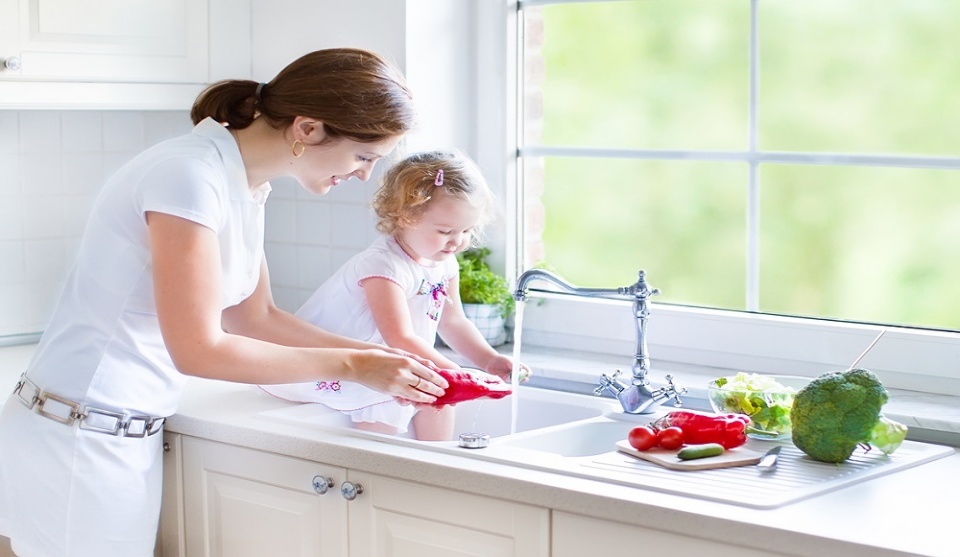For several years running, the city of Laval has received numerous
awards for the high quality of its drinking water. This special distinction comes through the Programme
d’excellence en eau potable (PEXEP).
Last November, two of Laval’s water plants—Pont Viau and
Sainte-Rose—received the highest distinction of 5-stars. The general criteria for receiving this award
is producing water that is higher than the ministry’s standard, high volume of
production, as well as the efforts made in continued improvement of its
station’s operations and procedures.
For comparison purposes, in 2012, only four water stations were
awarded 5-stars in the province of Quebec, and two of them were located in
Laval. Currently, the Pont-Viau and
Sainte-Rose plants produce water that is five times superior to the standards set
by The Ministry of Sustainable Development,
Environment, and Action against Climate Change, according to information on the
city of Laval’s website.
David De Cotis,
Vice-Mayor of Laval, explains that the third water plant in Laval, in Chomedey,
will soon be fast on the heels of the other two, with plans underway for major
renovations to bring it up to par. “Our city is working hard to ensure that we
have the cleanest drinking water in the province,” says De Cotis. “Millions of dollars are invested in
renovations and maintenance over time to maintain this high standard.” Laval’s
drinking water distribution system covers 1600 km and is managed by the three
plants.
“It’s a big
investment, but it’s an important one,” says De Cotis. In a continued effort to make the city as
green as possible, De Cotis says that as of last spring, City Hall has become a
bottle-free environment. All staff
members drink the tap water and bring reusable plastic bottles to store and
drink their water. “In the future, we
would like to extend this to all other municipal buildings,” says De Cotis.
On the city’s
website, information can be found about how the plants function to produce
clean drinking water. There is also
information on the city’s two grants offered to citizens; one for the purchase
of a rainwater barrel and the other for the replacement of regular flow toilets
with low-flush ones.
De Cotis urges
citizens to consider reducing or eliminating the purchase of bottled water, as
Laval’s tap water can easily be bottled in pitchers or reusable bottles and
stored in the refrigerator.
According to a
2014 CBC news report, the bottled water industry is worth more
than $170 billion, and North
Americans consume the most bottled water.
So much so, that in the U.S., bottled water has surpassed milk and
beer in terms of volume sold. According to the report, three out of 10 Canadian
households drink bottled water at home (Statistics Canada).
A report from York
University in Toronto states that more than 90<>percentage<> of the cost of bottled water is
attributed to things other than the water itself, such as packaging, shipping
and marketing. What’s worse, plastic
water bottles can take hundreds of years to decompose or may not decompose at
all, given that most landfills don't have enough heat, light and oxygen to
break down much of anything outside of organic matter.
Another
fact to swallow; if you drink the recommended eight glasses of (bottled) water
per day, you will spend roughly $1,400 per year on bottled water.

 In The Latest Issue:Latest Issue:
In The Latest Issue:Latest Issue:
- Celebrating Community an...
- Celebrating the Unsung H...
- Understanding Newborn St...
Articles
Calendar
Virtual- ANNUAL TEACHER APPRECIATION CONTEST
- APPUI LAVAL
- ARTS & CULTURE
- CAMPS
- CAR GUIDE
- CCIL
- CENTENNIAL ACADEMY
- CHARITY FUNDRAISING
- CITYTV
- COSMODÔME
- COMMUNITY CONNECTIONS
- COVER STORY
- DINA DIMITRATOS
- ÉCOLE SUPÉRIEURE DE BALLET DU QUÉBEC
- EDITORIALS
- ÉDUCALOI
- EDUCATION
- EMPLOYMENT & ENTREPRENEURSHIP
- FÊTE DE LA FAMILLE
- FÊTE DU QUARTIER SAINT-BRUNO
- FAMILIES
- FESTIVAL LAVAL LAUGHS
- FÊTE DE QUARTIER VAL-DES-BRISES
- FINANCES
- GLI CUMBARE
- GROUPE RENO-EXPERT
- HEALTH & WELL-BEING
- 30 MINUTE HIT
- ANXIETY
- CHILDREN`S HEALTH & WELLNESS
- CLOSE AID
- DENTAL WELLNESS
- EXTREME EVOLUTION SPORTS CENTRE
- FONDATION CITÉ DE LA SANTÉ
- GENERAL
- HEARING HEALTH
- MESSAGES FROM THE HEALTH AGENCY OF CANADA
- MENTAL HEALTH
- SEXUALITY
- SOCIAL INTEGRATION
- SPECIAL NEEDS
- TEENS
- THE NUTRITION CORNER
- THE NUTRITION CORNER - RECIPES
- VACATION DESTINATION
- WOMEN'S FITNESS
- WOMEN'S HEALTH
- HILTON MONTREAL/LAVAL
- HOME & GARDEN
- INTERNATIONAL WOMEN'S DAY
- JAGUAR LAVAL
- LAVAL À VÉLO
- LAVAL FAMILIES TV SHOW
- LAVAL FAMILIES MAGAZINE CARES
- LAVAL URBAN IN NATURE
- LE PARCOURS DES HÉROS
- LES PETITS GOURMETS DANS MA COUR
- LEON'S FURNITURE
- LEONARDO DA VINCI CENTRE
- LFM PREMIERES
- LIFE BALANCE
- M.P. PROFILE
- MISS EDGAR'S AND MISS CRAMP'S SCHOOL
- MISSING CHILDREN'S NETWORK
- NETFOLIE
- NORTH STAR ACADEMY LAVAL
- OUTFRONT MEDIA
- PASSION SOCCER
- PARC DE LA RIVIÈRE-DES-MILLE-ÎLES
- PÂTISSERIE ST-MARTIN
- PIZZERIA LÌOLÀ
- PLACE BELL
- PORTRAITS OF YOUR MNA'S
- ROCKET DE LAVAL
- SACRED HEART SCHOOL
- SCOTIA BANK
- SHERATON LAVAL HOTEL
- SOCIÉTÉ ALZHEIMER LAVAL
- STATION 55
- STL
- SUBARU DE LAVAL
- TECHNOLOGY
- TEDXLAVAL
- TODAY`S LAURENTIANS AND LANAUDIÈRE
- TODAY`S LAVAL
- WARNER MUSIC
- THIS ISSUE
- MOST RECENT
Magazine
Your Tap Water is 5-Star Rated
Articles ~e 105,7 Rythme FM 4 chemins Annual Teacher Appreciation Contest Appui Laval Arts & Culture Ballet Eddy Toussaint Camps THIS ISSUE MORE...
CONTESTS Enter our contests
CONTESTS Enter our contests
CALENDAR
Events & Activities
COMMUNITY Posts Events
PUBLICATIONS Our Magazine Family Resource Directory
LFM BUSINESS NETWORK Learn more
COUPONS Click to save!
COMMUNITY Posts Events
PUBLICATIONS Our Magazine Family Resource Directory
LFM BUSINESS NETWORK Learn more
COUPONS Click to save!
SUBSCRIPTIONS
Subscribe to the magazine
Un-Subscribe
E-NEWSLETTER Subscribe to our E-newsletter Un-Subscribe
WRITE FOR US Guidelines & Submissions
POLLS Vote today!
E-NEWSLETTER Subscribe to our E-newsletter Un-Subscribe
WRITE FOR US Guidelines & Submissions
POLLS Vote today!
ADVERTISERS
How to & Media guide
Pay your LFM invoice
SUGGESTIONS Reader's Survey Suggest a Listing
LFM About Us Our Mission Giving Back Contact Us
SUGGESTIONS Reader's Survey Suggest a Listing
LFM About Us Our Mission Giving Back Contact Us
 PICK-UP LOCATIONS
Get a copy of LFM!
PICK-UP LOCATIONS
Get a copy of LFM!
TERMS & CONDITIONS Privacy | Terms
ISSN (ONLINE) 2291-1677
ISSN (PRINT) 2291-1677
Website by ZENxDESIGN






Tweet
Share